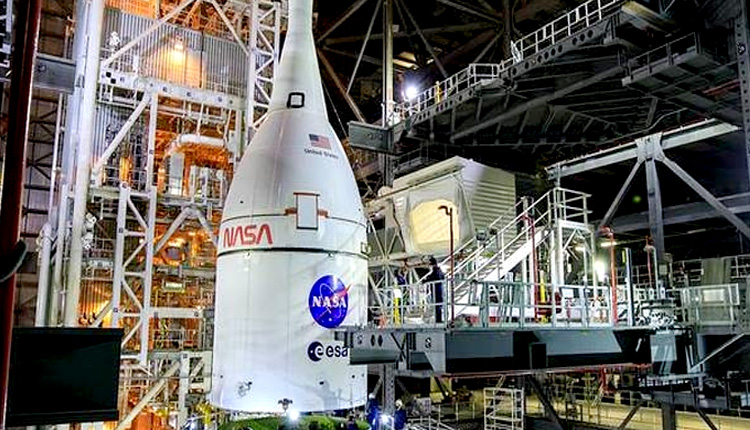Washington: NASA’s Artemis 1 moon rocket will make its public debut on March 17, the US space agency officials said.
The mega rocket Space Launch System and Orion spacecraft will be rolled out from the Vehicle Assembly Building to the launch pad at Florida’s Kennedy Space Center on Thursday in a 12-hour journey.
“Roll out of the integrated Space Launch System rocket and Orion spacecraft to Launch Pad 39B at NASA’s Kennedy Space Center in Florida is slated for March 17,” the agency said in a statement.
“The rollout involves a 4-mile journey between the Vehicle Assembly Building and the launch pad, expected to take between six and 12 hours,” it added.
At the pad, NASA said it will conduct a final pre-launch test known as wet dress rehearsal, which includes loading the SLS propellant tanks and conducting a launch countdown.
It “will be the final major test for the Artemis 1 mission and will ensure the rocket, spacecraft, ground equipment and launch team are ‘go’ for launch”, NASA said.
The debut is a much-anticipated development for a launch system that’s been beset by delays and a mounting price tag.
Earlier scheduled for launch in February, NASA’s much awaited ‘Artemis 1’ mission has been delayed until March. While the space agency has not yet announced a confirmed date, it is also reviewing launch opportunities in April and May.
‘Artemis 1’ will be the first of NASA’s Artemis missions, which the agency plans will eventually land humans back on the moon as part of a long-term goal for a sustainable lunar presence. This will be the first time that NASA or anyone else will send humans to the moon’s surface since the agency’s last Apollo mission in 1972.
This first mission will be uncrewed and will see the Orion spacecraft go far past the moon before returning to Earth and testing the technology that will one day soon carry humans.
Through Artemis missions, NASA will land the first woman and the first person of colour on the Moon, paving the way for a long-term lunar presence and serving as a stepping stone on the way to Mars.
(IANS)



















